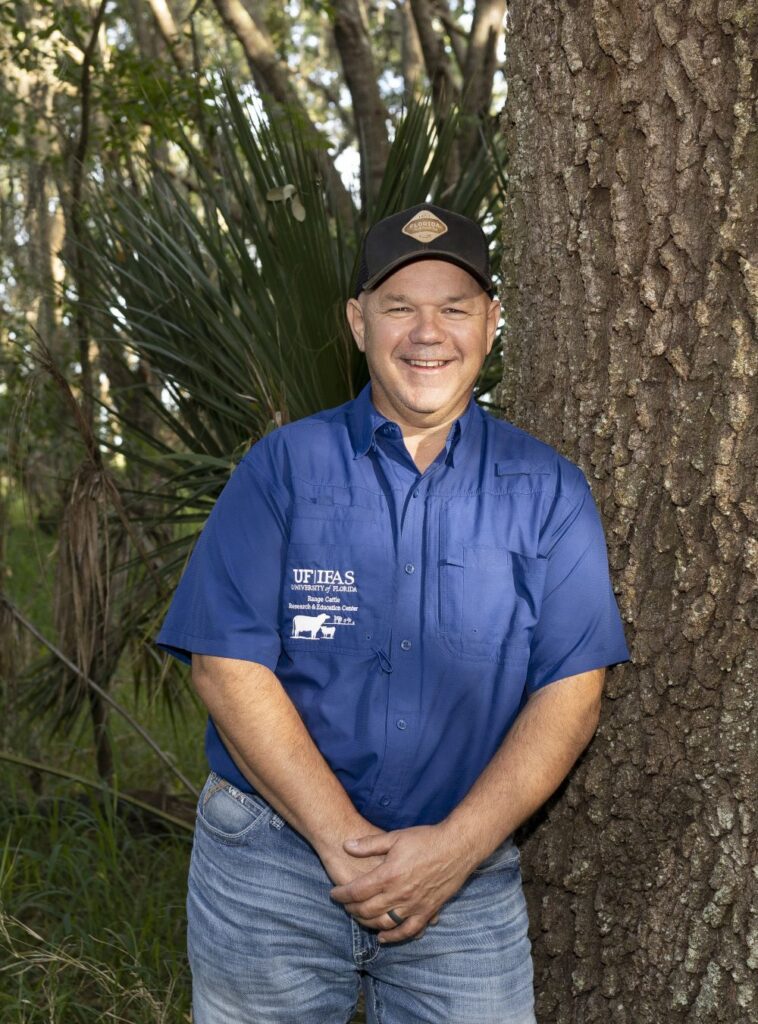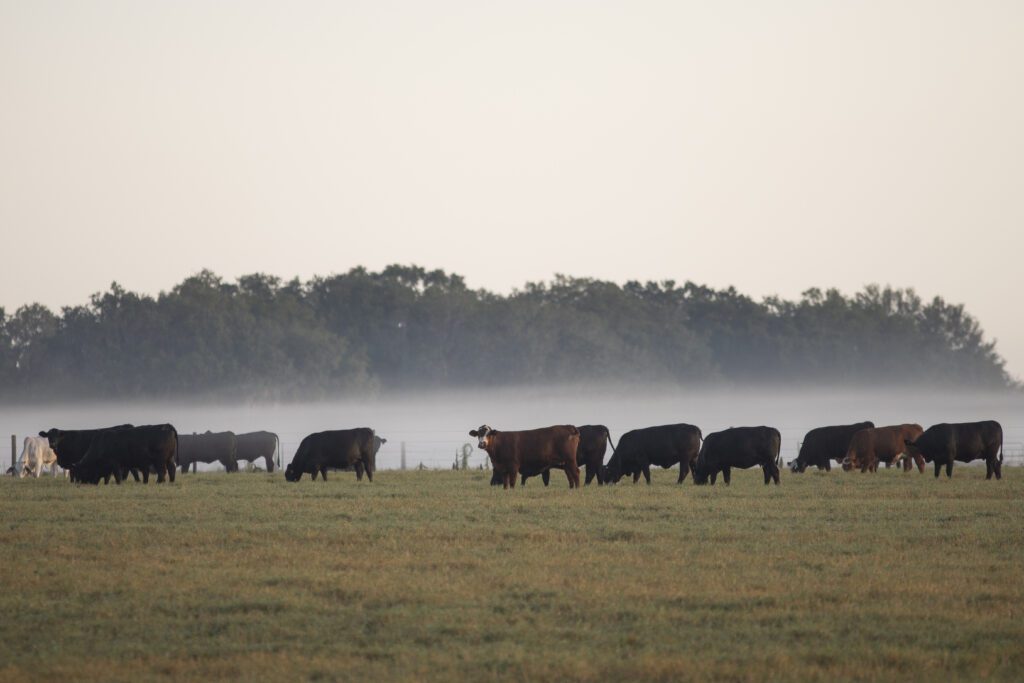by BRAD BUCK, UF/IFAS
For the past 81 years, faculty and staff at the University of Florida Range Cattle Research and Education Center have hosted Ona Field Day to update ranchers and land managers with the latest scientific information.
The next field day will begin at 8 a.m. on Oct. 10, and registration is open until Oct. 8.
“This field day provides a means for clientele to hear and/or see the results of current and ongoing research,” said center director Brent Sellers. “It also provides a mechanism for them to provide us with feedback on their current and/or potential issues.”

Participants include cattle and land managers, UF/IFAS Extension staff, students, agricultural industry representatives and federal, state and local government representatives.
This year, the day will start with participants visiting sponsor and educational booths, student poster displays and light refreshments. The opening assembly will begin at 9:30 with speeches by Sellers and Rob Gilbert, UF/IFAS dean for research and executive director for academic affairs. Also speaking will be Dale Carlton, president of the Florida Cattlemen’s Association.
At 10:05 a.m. the RCREC faculty presentations will begin:
- A cattle market outlook: Hannah Baker, statewide specialized agent in beef cattle and forage economics, will highlight current seasonal market prices. She’ll explain why she and most other economists believe that market prices will remain relatively high and will likely increase from where they are today.
- Benefits of probiotic supplementation in cow-calf herds: Philipe Moriel, associate professor of animal sciences, will show results of the use of probiotic supplements and how they impact heifer and mature cow production. Probiotics have been widely studied in human health, but much less so in beef cattle production.
- Coyote ecology in Florida’s rangelands: Hance Ellington, assistant professor of wildlife ecology and conservation, will talk about coyote behavior, including the differences between urban and rural coyotes. He will touch on why coyotes are so difficult to manage on the landscape. He’ll also talk about how his current research looks at the impacts of coyotes in grazinglands and how they may impact cattle.
- Artificial intelligence in agriculture and water management: Golmar Golmohammadi, assistant professor of soil, water, and ecosystem sciences, will talk about how she and others plan to use AI to forecast surface and groundwater levels as well as flood prediction and management.
Here are the afternoon sessions, starting at 1:15 p.m.:
- What is the value of fall fertilized forage in South Florida? – Joao Vendramini, professor of agronomy.
- Smutgrass management techniques: Broadcast and spot-treatment applications – Sellers.
- Pasture management strategies to increase soil carbon sequestration and greenhouse gas mitigation – Maria Silveira, professor of soil, water, and ecosystem sciences.

